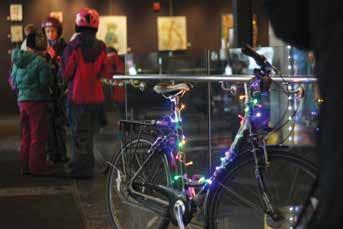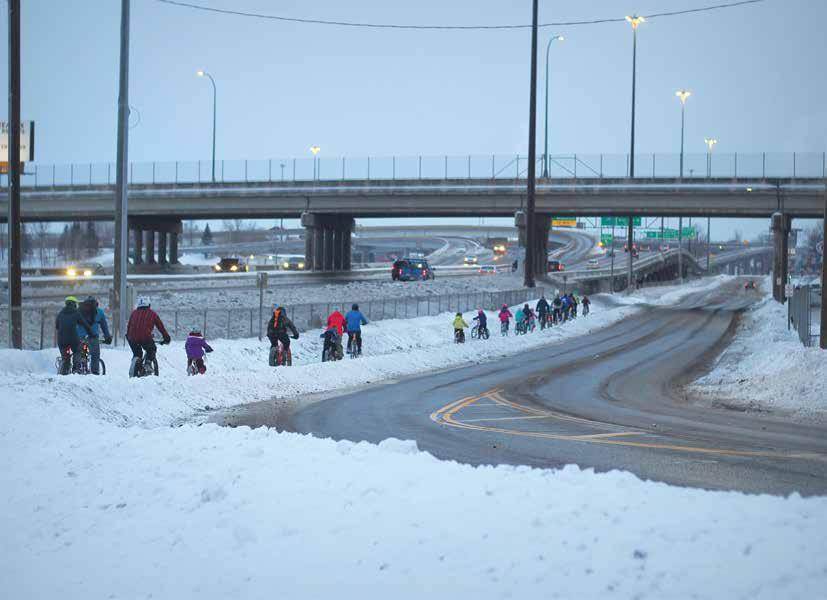
4 minute read
ZEITGEIST advocates for transportation equity
By Andrea Busche
Transportation — how we get from one place to another — is often something so automatic and engrained that we don’t even think about it. Most people will just hop in their car and go, whether it be a short trip to the grocery store or a longer trek across town to visit friends.
For those who do not have a vehicle — either by choice, economic necessity or inability to drive due to physical challenges or lack of a driver’s license — getting from point A to point B requires much more coordination: checking bus routes and schedules or making sure there is an easy way to bike or walk there.
Making transportation accessible and equitable is a priority for Zeitgeist, a nonprofit arts and community development organization in Duluth.
“The issues of transportation equity are rooted in how we design our communities that allow people to move around freely and safely,” said Andrea Crouse, Zeitgeist’s community development manager.
Zeitgeist’s work focuses predominantly on the Central Hillside neighborhood, which has a higher proportion of seniors, people with disabilities, Black, Indigenous and people of color (BIPOC) community members, and low income and unhoused individuals compared to the citywide average.
Additionally, about 36% of Central Hillside residents do not have a personal vehicle, according to Minnesota Compass, a demographic information database.
“When we talk about transportation equity, we’re often thinking about these communities that are either choosing to or in a situation where they don’t have access to personal vehicles and still need to move around to get to appointments, to get groceries, to see friends and family,” Crouse said. “But they need safe infrastructure to do that.”
This infrastructure includes things like maintained sidewalks, bike lanes, crosswalks, appropriate signage, efficient bus service and street design that prioritizes walkers, bikers and bus riders as much as vehicles.
“All of these issues just get more crunched in the winter when you add snow on top of it,” Crouse said.
Zeitgeist has historically been a community leader in terms of bike and pedestrian advocacy, hosting and promoting a plethora of community events during Winter Bike Week in February and Bus Bike Walk month in May.
Top to bottom: Abigail Blonigen, Stevie Twining and Shawna Mullen learn how to put a bike on a DTA bike rack at the 2021 Winter Bike to Work Day event.
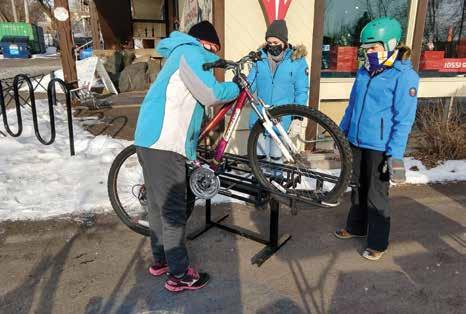
The goal of the winter group ride is to show folks they don’t need special equipment to ride in the winter, and to give folks a chance to navigate bike trails and bike lanes in the city without having to go at it alone.
Winter Bike to Work Day participants pose for a selfie in 2021.
This year, Zeitgeist will host a group bike ride beginning and ending at the Duluth Cold Front festival in Bayfront Park.
“(Group rides) continue to be a really great way for folks to try out winter biking with a supportive group of friends and community members,” Crouse said.
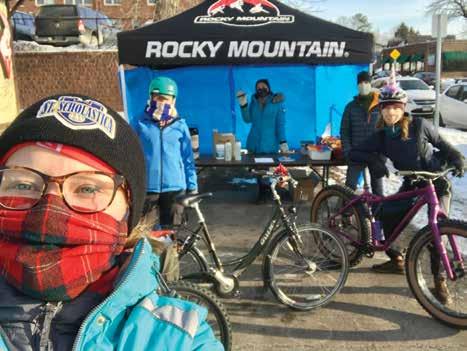
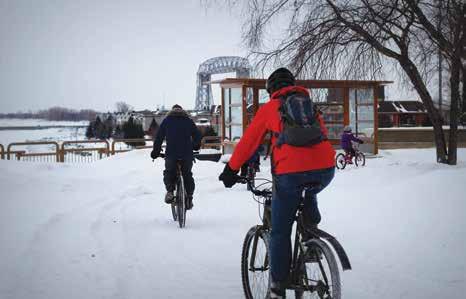
The goal of the ride is to show folks they don’t need special equipment to ride in the winter, and to give folks a chance to navigate bike trails and bike lanes in the city without having to go at it alone.
The Feb. 4 ride also coincides with Transit Equity Day (Rosa Parks’ birthday), honoring her contributions to civil rights and public transit by refusing to give up her seat to a white passenger on a segregated bus in 1955.
Last year the mayors of Duluth and Superior issued statements proclaiming the day as Transit Equity Day, celebrating Parks, acknowledging that “affordable, reliable public transit is an essential public service, on par with utilities such as water and electricity,” and advocating for transit as a tool in combating climate change.
The proclamation was facilitated by
Continued on page 20
Zeitgeist’s active transportation committee and the Duluth Transit Authority, which offers free fare on Transit Equity Day.
According to the Minnesota Department of Transportation, transportation is the No. 1 source of carbon pollution in the state and across the nation. Reducing this pollution will lessen the impacts of climate change, as well as improve air quality. Better air quality is just one of the many public health implications of investing in alternative forms of transport.
The U.S. Department of Transportation says providing better infrastructure for walkers and bikers allows people to “build physical activity into their daily routine,” which can promote better health outcomes.
According to a health status report by St. Louis County Public Health and Human Services, the average life expectancy in the Central Hillside neighborhood is up to 12 years lower than adjacent, more wealthy neighborhoods.
Making it easier for folks to get out and get active, get access
About 36% of Central Hillside residents do not have a personal vehicle, relying on biking, walking or public transit to food, medical appointments and social connection through improved transportation options is one way to begin to address these disparities, according to Crouse.
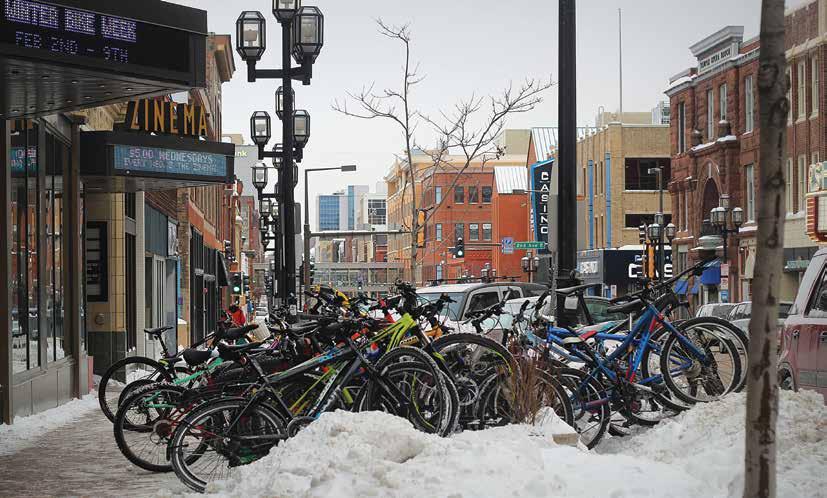
“I’ve always thought of how impactful it would be if people from different neighborhoods made a point of just walking in a neighborhood other than their own, whether to see how much better it is, or how much worse it is,” she said. “Because I think without that experience, people stay in their own little bubbles.”
With a number of transportation projects happening in the Twin Ports, Zeitgeist aims to advocate to improve pedestrian and bike infrastructure as well as empower community members to express their own needs and concerns.
“We want to set up … ways to get involved in the community design process and make sure that we’re building the Twin Ports of our future needs and not just the way we move around town today,” Crouse said. D
